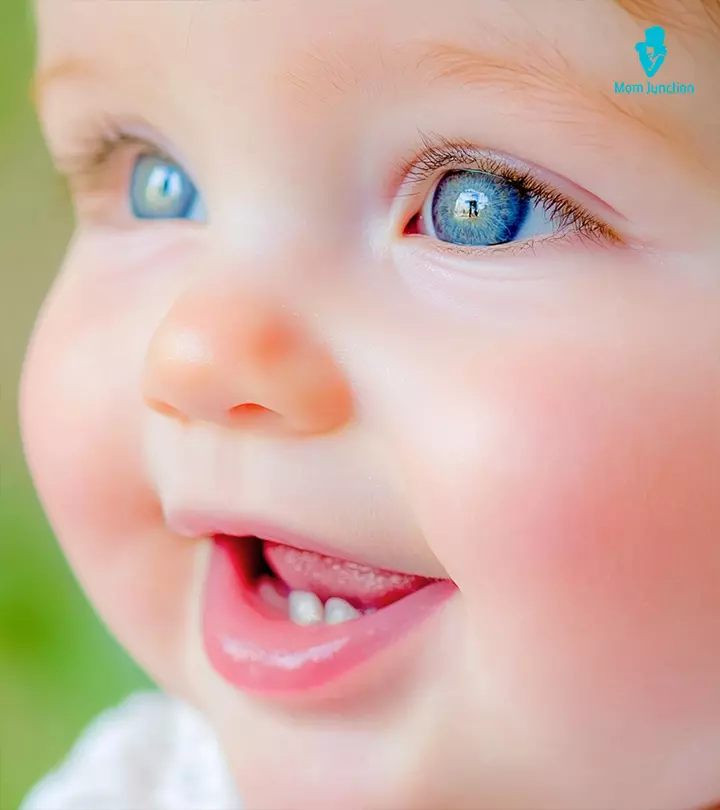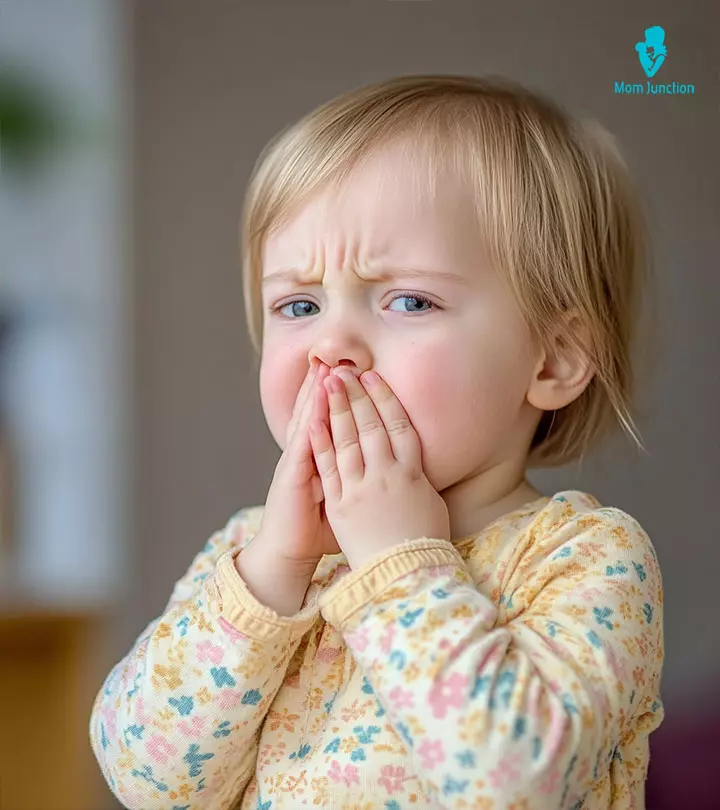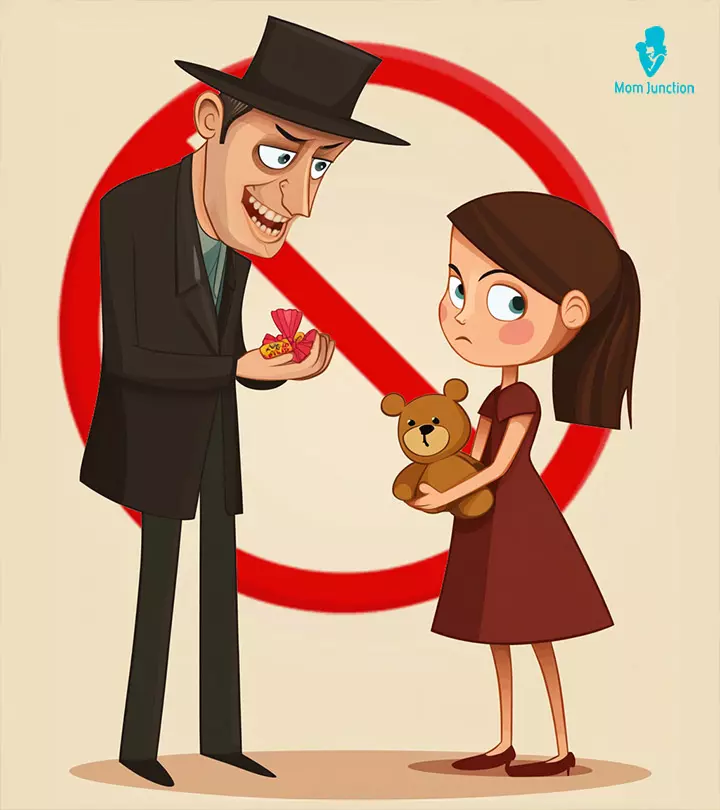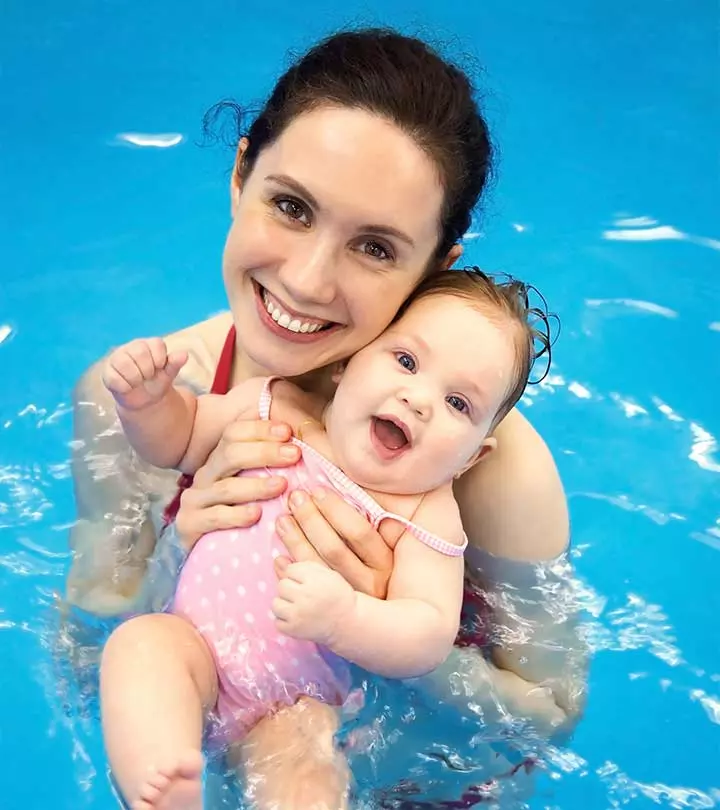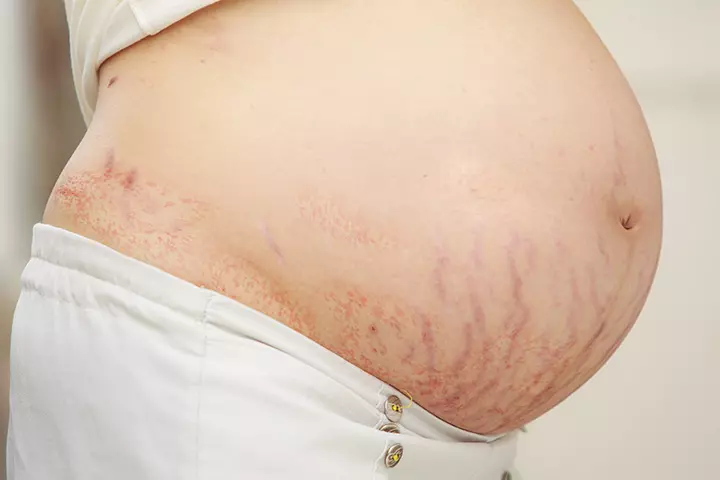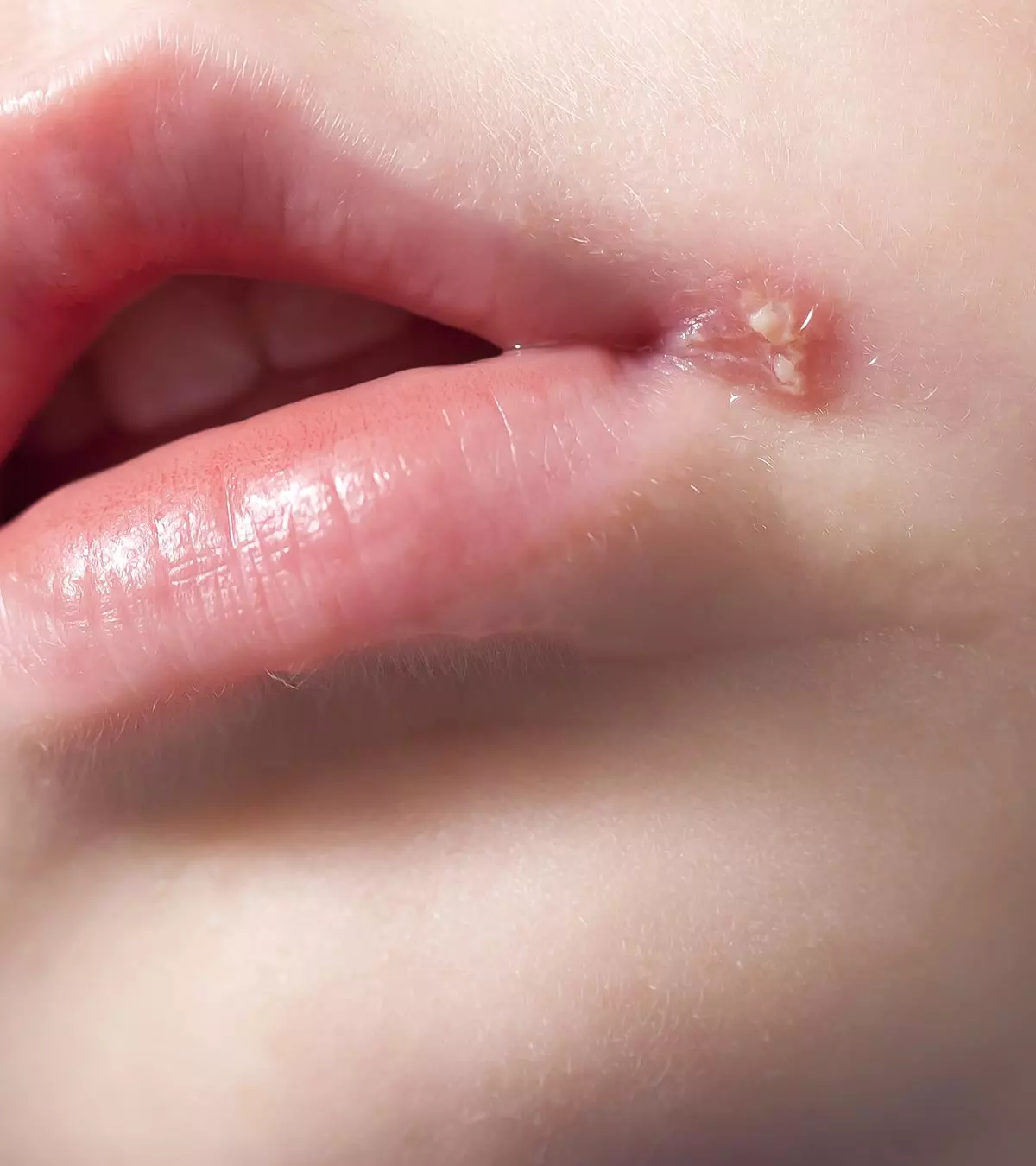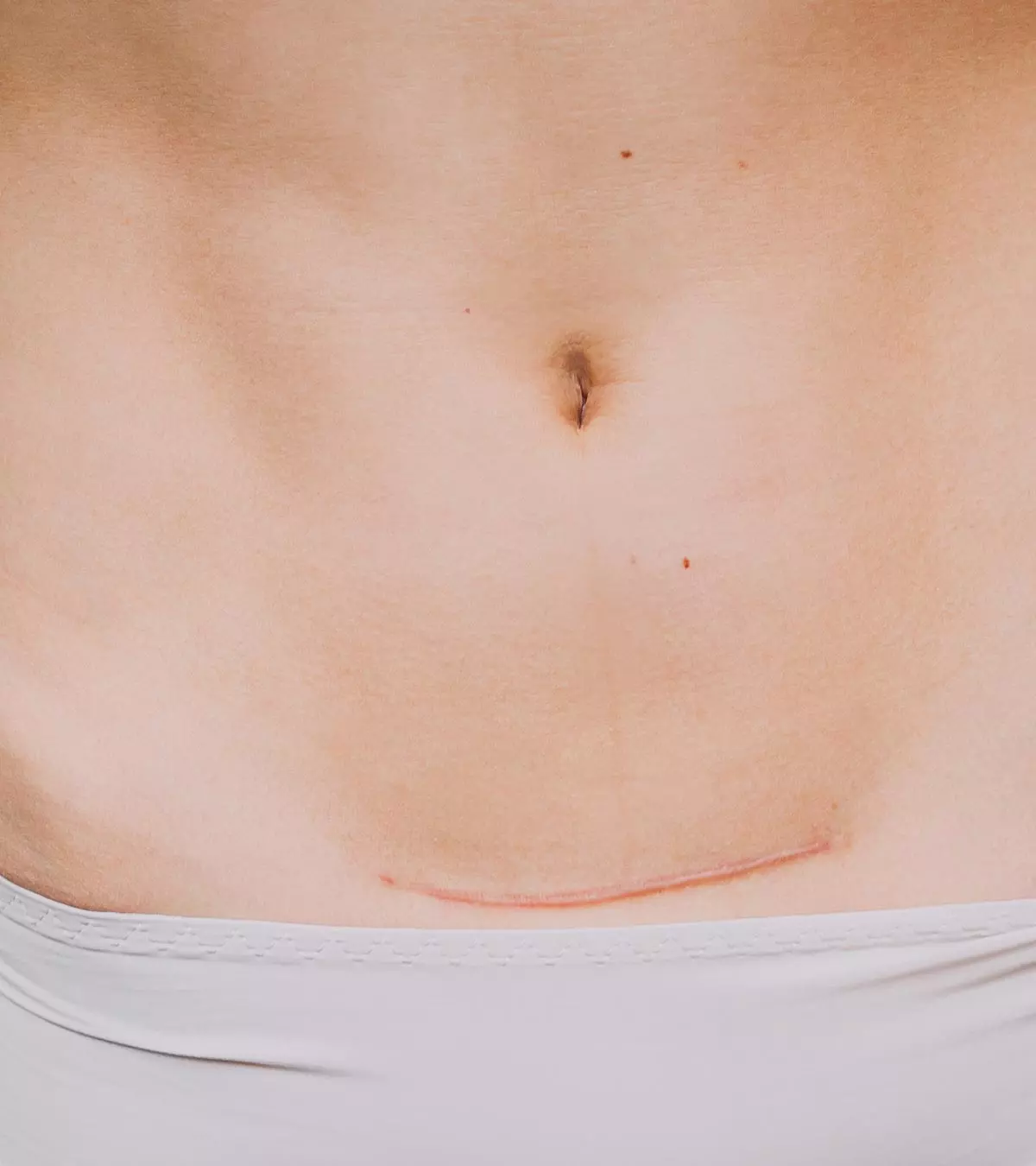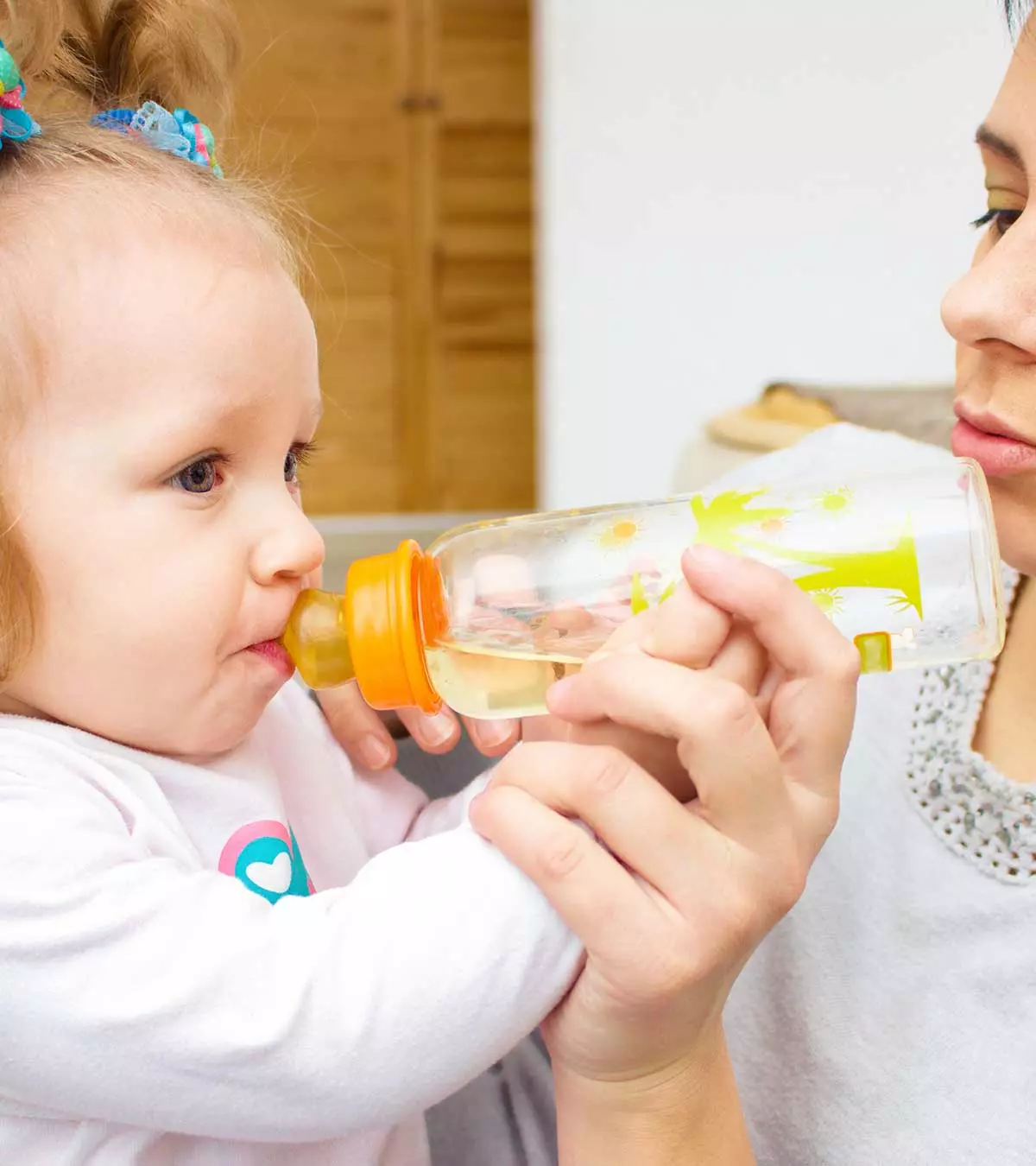
Image: ShutterStock
Dehydration in toddlers is a common condition seen during the summers or episodes of infections. There could be plenty of fluid loss in a child due to profuse sweating or conditions like vomiting or diarrhea. However, dehydration can be easily prevented and also managed by parents with simple measures at home. Keep reading as we dole out some useful information on the possible causes, signs to look for, and ways to prevent dehydration in young children.
Key Pointers
- Toddlers can experience dehydration due to health conditions such as diarrhea, vomiting, fever, sweating, and heat exposure.
- Dehydration in toddlers is identified by dry mouth, lack of urination for prolonged periods, sunken eyes, sunken fontanelle, disinterest in activities, and fussiness.
- The initial treatment for dehydration in toddlers is typically oral rehydration salts (ORS) as it helps replenish lost fluids.
- Administering small quantities of the ORS solution every few minutes for four hours is recommended.
What Is Dehydration?
Dehydration is the condition where the body loses more water than it receives.
It creates a scarcity of water for essential body functions eventually disrupting normal metabolic processes. Toddlers are the most susceptible group to dehydration as their smaller bodies hold lesser fluid reserves.
What Causes Dehydration In Toddlers?
Toddlers can lose fluids through several ways, thus resulting in dehydration:
- Diarrhea in toddlers is the leading cause of water loss (1). The condition arises due to loose stools caused by viral, bacterial, or parasitic infection, and even food allergy. The condition causes rapid water loss from the toddler’s body, thus, leading to dehydration.
- Vomiting rapidly depletes the body’s fluid reserves, just as diarrhea does.
- The high body temperature during a fever makes the body lose water quickly, especially when the toddler sweats.

- High heat and humidity can cause excessive sweating in toddlers and lead to heat exhaustion, dehydration, and sunstroke. Toddlers who play a lot in the outdoors can be prone to this form of dehydration. Furthermore, a Centers for Disease Control and Prevention (CDC) report reveals that children aged two to five typically consume just 13 ounces of water daily; this insufficient water intake may increase the risk of dehydration in toddlers. Your toddler may not be able to tell you about dehydration but their body gives you enough signals.
What Are The Signs Of Dehydration?
Look out for these symptoms (2):
- Dry mouth is the earliest sign of thirst and dehydration in toddlers. You notice lesser salivation , and the mouth appears sticky with dry lips.
- There is no urination for six to eight hours or very dark and concentrated urine.
- There are fewer tears than normal when the toddler cries.

- The toddler’s eyes appear sunken into the sockets.
- The toddler’s soft spot at the top of the head (called fontanelle) appears sunken.
- The toddler would be disinterested in any activity. They will have lower levels of concentration and would act irritated or fussy when coaxed to do something.
- If the dehydration is due to an infectious cause, you will notice soft or watery stools even if the child is dehydrated.
When dehydration is due to vomiting or overheating, the bowel movement will be infrequent, and stools might be harder.
If you suspect dehydration and these symptoms are present then contact your pediatrician or health care provider.
When To Rush To A Doctor?

Take the toddler to a doctor or emergency unit when you see the following signs:
- Drowsiness and semi-unconsciousness
- Repeated vomiting and/ or diarrhea
- Urination happens only once or twice in 24 hours
- The toddler is unable to keep any fluids down
Vomiting and diarrhea cause rapid fluid loss while infrequent urination indicates that dehydration has begun already.
This is when the toddler must be taken to a doctor for diagnosis.
How Is Dehydration Diagnosed?
Pediatricians look for symptoms mentioned earlier as dehydration is mostly a clinical diagnosis. They might proceed to the following diagnostic tests to aid the diagnosis and treatment process:
- Blood tests to look at electrolyte imbalance and the resulting changes in the levels of sodium and potassium indicating the child is very dehydrated.
- Urine test to check for concentrated urine, which is a tell-tale sign of dehydration and an indicator of low fluid levels in the body.
Keep reading to find out the ways to treat dehydration.
How Is Dehydration In Toddlers Treated?
Replenishing the lost fluids is the only treatment for dehydration, but treating the underlying cause is also important. Here is how dehydration is treated:
1. Oral rehydration
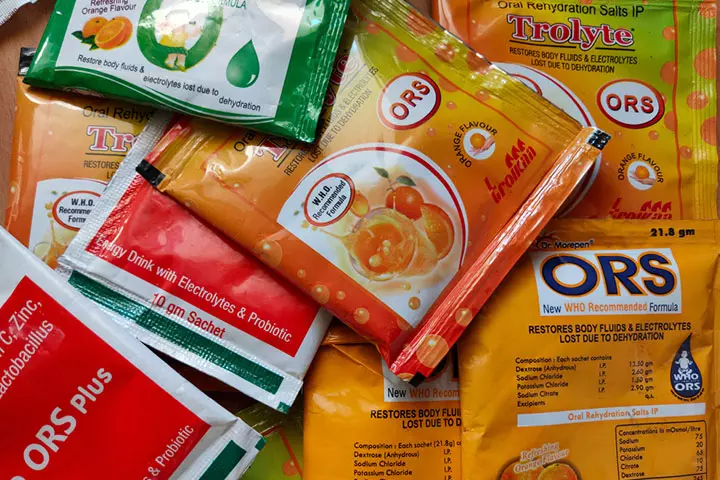
Oral rehydration salts, better known as ORS, are over-the-counter medicine for rehydration of toddlers. You can either purchase a readymade rehydration drink or buy an ORS powder to dissolve in drinking water. A single pouch is usually dissolved in a liter of water but look for manufacturer’s instructions. The next step is the oral rehydration process.
 Quick tip
Quick tipOral rehydration process
i. Oral rehydration process spans over four hours.
ii. The volume of ORS solution depends on a toddler’s weight. The World Health Organization (WHO) recommends multiplying the toddler’s weight in kilograms with 75 to arrive at ORS volume in milliliters (3).
iii. For example, if the toddler weighs 10kg, you will need to give him 750ml of ORS solution in four hours.
iv. Give one or two teaspoons (5 or 10ml) of ORS solution with a spoon or oral syringe every few minutes.
v. After four hours, assess the toddler’s condition.
If the toddler’s pediatrician suggests a higher volume of ORS, then follow the doctor’s recommendation. Repeat the rehydration procedure if the toddler is still very dehydrated. It would be best to give small volumes of fluid frequently especially in a child that is vomiting.
2. Intravenous rehydration
Extreme cases of dehydration have to be dealt with an intravenous (IV) fluid infusion
. It is required when the toddler becomes semi-conscious, unresponsive, and develops severe lethargy. IV fluids are administered only at a hospital under the doctor’s supervision.
3. Antibiotic, antiviral, and analgesic medication
Antibiotics and antiviral medicines are generally not needed. In some cases they might be used to treat the underlying infection. Fever is managed using medications such as ibuprofen and acetaminophen. These medicines are administered as per the doctor’s prescription.
Oral rehydration along with some medicines is perhaps all you need to cure a preschooler’s dehydration. But the care does not end there. You could also use a few home remedies.
What Are The Home Remedies For Dehydration?

Follow these steps at home to relieve the toddler’s dehydration:
- Feed foods that hydrate: Make the toddler eat fruits with high water content, such as watermelon and bananas. You can also give fresh and tender coconut water. Feed diluted fruit purees, vegetable or chicken broth, and preparations with high water content such as khichdi. Yogurt is also a good option against dehydration.
- Give plenty of water: Give sips of water at regular intervals and increase the frequency when the weather is hot or humid.
- You can continue breastfeeding if your child has diarrhea.
Do not give fruit juice and commercial sports drinks as they contain high sugar and sodium, which can increase dehydration levels(4)
. If the toddler suffers from diarrhea, then cut down on formula or cow milk since it can aggravate loose stools. You may also consult a pediatrician or a pediatric dietician to know what foods suit your toddler. Once the toddler is back to good health, feed them the usual way.
 Point to consider
Point to considerHow To Prevent Dehydration In Toddlers?
Prevention of dehydration involves mitigating the loss of surplus fluids from the body. Here is what you should do:
- Keep the toddler hydrated. Make sure they get adequate fluids in accordance with their lifestyle and weather. Toddlers who spend a lot of time outdoors may feel more thirsty and need more water intake than those who play indoors. Fluid loss through sweating is higher in humid conditions; therefore the toddler must have regular sips of water. You can add mint leaves or a bit of lime juice to the water if they don’t like drinking water.
Clare Kirk, a mother talks about the steps she and her partner take to ensure that their children are always well-hydrated. She says, “I’ve tried all sorts of things to get my children to drink regularly. Two of them are excellent at knowing when they’re thirsty and will help themselves, one is still a toddler, and the fourth just does not remember! One of the strategies we’ve come up with is to fill drinks bottles at the beginning of the day, and encourage them to try to finish them by after lunch…and then to refill them for the afternoon (i).”
- Prevent infections of the gastrointestinal tract as they can lead to diarrhea and vomiting. Maintain hygiene and teach your toddler healthy habits such as washing hands before and after meals and when coming back home from outside.
- Experts recommend dressing your toddler in light weight, light-colored, and loose-fitting clothes in hot and humid weather. Heat dissipation is better in such outfits, thus reducing the possibility of overheating and dehydration.
Frequently Asked Questions
1. What are the stages of dehydration?
Dehydration can be classified into mild, moderate, or severe (6). Mild and moderate dehydration are seldom harmful. Severe dehydration can be life-threatening if not addressed promptly.
2. Can dehydration affect the brain?
Severe dehydration can cause the blood vessels in the brain to shrink, potentially affecting brain functions such as memory and coordination. It may also disturb the dopamine and serotonin balances in the brain, causing feelings of nervousness and sluggishness (7) (8).
3. Is a sore throat a symptom of dehydration?
Dehydration can increase dryness in the throat and make it feel itchy. It usually happens when people go long hours without drinking water.
4. Can dehydration cause speech problems?
Severe dehydration may affect memory and orientation, leading to a slurred speech (7). However, this doesn’t mean that dehydration will cause long-term speech problems.
5. What should I do if my toddler refuses to drink water?
Try to make drinking water appealing to toddlers by using creative strategies. You can use fun, child-friendly containers with colorful straws or bottles with their favorite characters, add natural flavors such as fresh fruit slices or berries to water, and ensure easy access to water through a designated drinking station within the child’s reach. Also, ensure you and the siblings model good hydration habits by choosing water over sugary beverages (9).
Dehydration in toddlers is not uncommon, especially during summers. Ensuring adequate fluid intake is the key to preventing dehydration in toddlers. It is important to give your toddlers enough fluids, especially when they are sick with diarrhea, vomiting, etc. Untreated dehydration can worsen quickly. Dry mouth, reduced or no urination, fewer tears while crying, sunken eyes, etc., are some signs of dehydration. While most cases of dehydration are manageable through oral rehydration, therapy and intravenous fluid administration may be needed in severe cases.
Infographic: How To Know If A Toddler Is Dehydrated?
There can be many reasons for dehydration in toddlers, including diarrhea, vomiting, and hot weather. However, knowing the signs and symptoms can help provide prompt remedies and medical treatment, thus, preventing complications. The infographic below presents various signs of dehydration in toddlers you should be aware of.

Illustration: Momjunction Design Team
Illustration: Signs Of Dehydration In Toddlers Causes And Treatment
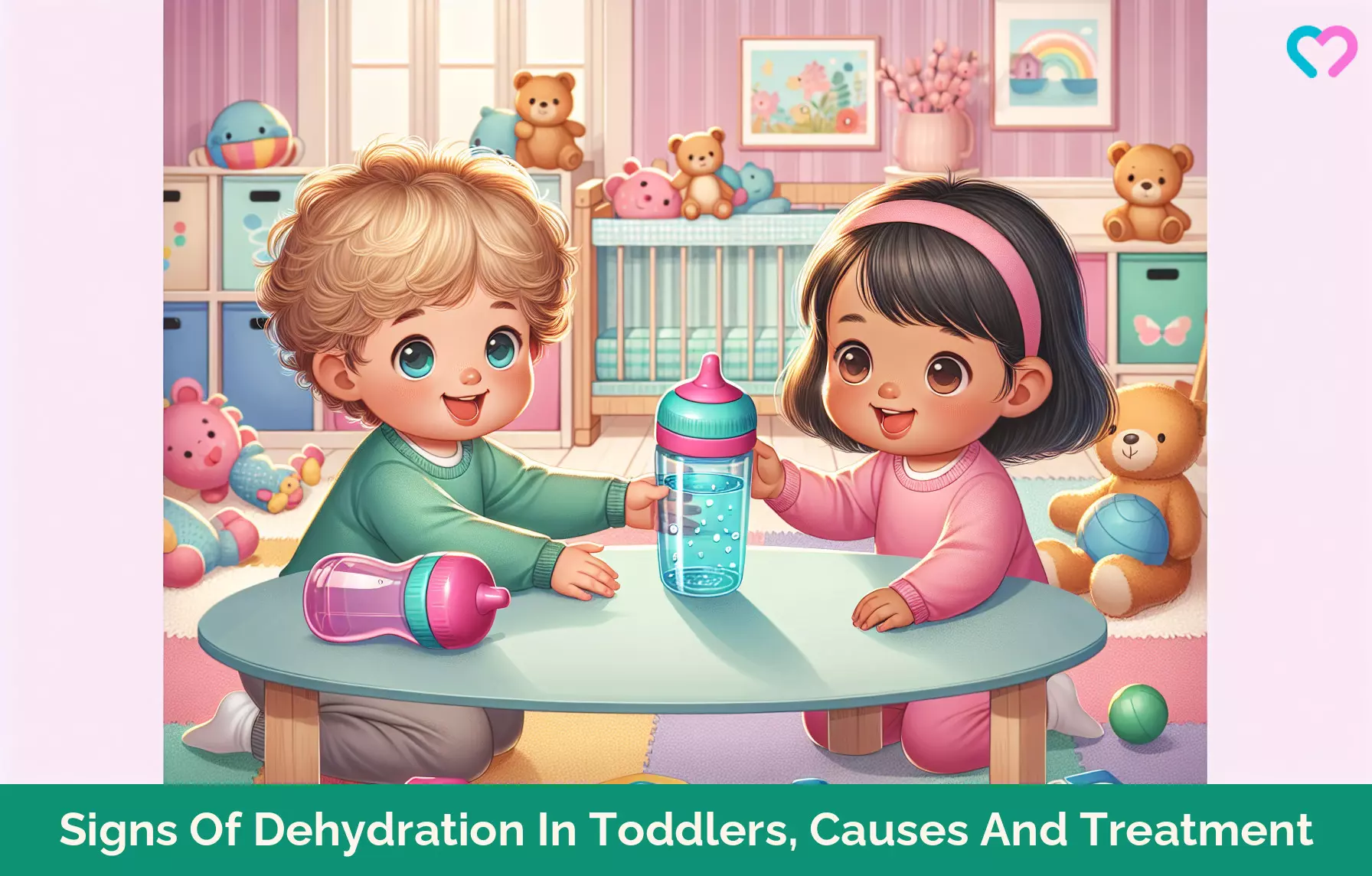
Image: Dall·E/MomJunction Design Team
Personal Experience: Source
MomJunction articles include first-hand experiences to provide you with better insights through real-life narratives. Here are the sources of personal accounts referenced in this article.
i. Tantrum check lists #2 – thirst.https://freeyourparenting.wordpress.com/2011/08/12/tantrum-check-list-2-thirst/
References
- Research.
https://coloradosph.cuanschutz.edu/research-and-practice/research - Dehydration.
https://kidshealth.org/en/parents/dehydration.html - Integrated Management of Childhood Illness.
https://apps.who.int/iris/bitstream/handle/10665/104772/9789241506823_Chartbook_eng.pdf;jsessionid=254CA4961665F8FD98CC70326E2BF8F9?sequence=16 - Treating Dehydration with Electrolyte Solution.
https://www.healthychildren.org/English/health-issues/conditions/abdominal/Pages/Treating-Dehydration-with-Electrolyte-Solution.aspx - Oral Rehydration Solutions.
https://travel.gc.ca/travelling/health-safety/rehydration - Dehydration.
https://medlineplus.gov/ency/article/000982.htm - Dehydration.
https://my.clevelandclinic.org/health/diseases/9013-dehydration - Matthew J Kempton et al.; (2011); Dehydration affects brain structure and function in healthy adolescents.
https://pubmed.ncbi.nlm.nih.gov/20336685/ - Encouraging Your Child to Drink Water.
https://headstart.gov/publication/encouraging-your-child-drink-water?redirect=eclkc
Community Experiences
Join the conversation and become a part of our nurturing community! Share your stories, experiences, and insights to connect with fellow parents.
Read full bio of Dr. Wayne Hough
Read full bio of Rohit Garoo
Read full bio of Dr. Ritika Shah
Read full bio of Ghazia Shah







